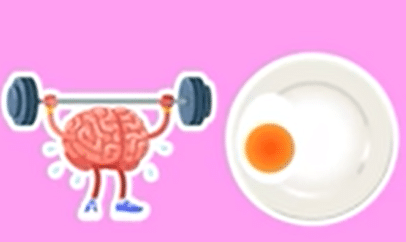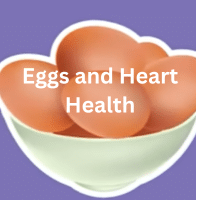Table of Contents
Is Eating an Egg a Day Good or Bad for Your Heart?
Eggs have long been a topic of discussion regarding heart health. Rich in essential nutrients, they are a staple in many diets worldwide. But how do they affect heart health, and is it safe to eat one egg a day? Let’s dive into what science says about eggs, their health benefits, and how they impact cardiovascular health.

Nutritional Profile of Eggs
Eggs are nutritional powerhouses packed with high-quality protein, vitamins, and minerals. Here’s a quick look at some of the key nutrients in an egg:
- Protein: Helps build and repair tissues, and aids in the production of enzymes and hormones.
- Vitamin D: Important for bone health and immune function.
- Vitamin B12: Essential for nerve function and the formation of red blood cells.
- Choline: Supports brain health and is involved in muscle function and heart health.
- Antioxidants: Lutein and zeaxanthin in eggs support eye health and may reduce oxidative stress.
These nutrients make eggs a valuable part of a balanced diet. However, when it comes to heart health, cholesterol content has sparked debates over the years.
The Link Between Eggs and Heart Health
For a long time, eggs were thought to negatively impact heart health because they contain dietary cholesterol. A single large egg has about 186 mg of cholesterol, which raised
Eggs and Heart Health: Is Eating an Egg a Day Good or Bad for Your Heart?
Eggs are among the most nutritious foods available, yet they remain a topic of debate, especially regarding heart health. For decades, the question has lingered: Is eating an egg a day good or bad for your heart? Recent research sheds light on how eggs impact cardiovascular health, revealing that they can be part of a healthy diet. Here’s a deep dive into the benefits of eggs, their effect on heart health, and what current science suggests about daily consumption.
Nutritional Benefits of Eggs
Before we explore how eggs impact heart health, let’s understand what makes them nutritionally unique. A single large egg provides:
- Protein: Roughly 6 grams of high-quality protein, supporting muscle repair and growth.
- Healthy Fats: About 5 grams, with a balance of unsaturated fats that support brain function and cellular health.
- Vitamins and Minerals: Including vitamins A, D, E, B12, riboflavin, and folate.
- Choline: An essential nutrient for brain and heart health, playing a role in nerve function and reducing inflammation.
- Antioxidants (Lutein and Zeaxanthin): Known for supporting eye health, these antioxidants may also reduce inflammation, which benefits heart health.
This nutrient-dense profile makes eggs an excellent addition to a balanced diet. But what about cholesterol?

Cholesterol Content in Eggs: Should You Be Concerned?
One large egg contains approximately 186 mg of cholesterol, found in the yolk. This has led to concerns about whether eggs might raise blood cholesterol levels and increase the risk of heart disease. However, recent studies suggest that dietary cholesterol doesn’t affect blood cholesterol levels as much as once thought.
For most people, moderate egg consumption—such as one egg a day—does not significantly raise blood cholesterol levels. In fact, the effect of dietary cholesterol on blood cholesterol is influenced more by genetics and overall diet, not by egg intake alone.
Eggs and Heart Health: What Science Says
Research has shifted in recent years regarding the role of eggs in heart health. Studies now indicate that moderate egg consumption may not harm heart health and may even be beneficial. Here’s what recent research reveals:
- No Significant Increase in Heart Disease Risk:
- According to a study published in the journal Heart, eating one egg a day was not associated with a higher risk of heart disease or stroke in healthy individuals. The study followed participants over several years, finding no significant link between egg consumption and cardiovascular events.
- Potential Heart Health Benefits:
- Some studies suggest that the nutrients in eggs, such as choline and antioxidants, may support heart health. Choline has been shown to reduce inflammation and improve blood vessel function, which can help reduce the risk of heart disease.
- Additionally, eggs contain unsaturated fats that may improve cholesterol ratios by increasing levels of HDL (good) cholesterol, which helps remove LDL (bad) cholesterol from the bloodstream.
- Improved Blood Lipid Profiles:
- A meta-analysis of multiple studies found that moderate egg consumption could improve blood lipid profiles by increasing HDL cholesterol and lowering triglycerides. Higher HDL levels are associated with a lower risk of heart disease.
- Satiation and Weight Control:
- Because eggs are protein-rich, they help promote feelings of fullness, which can aid in weight management. Maintaining a healthy weight is crucial for heart health, as obesity is a significant risk factor for cardiovascular disease.
Who Should Be Cautious About Eating Eggs?
For most people, eating an egg a day is safe and even beneficial. However, some individuals may need to be cautious:
- People with Diabetes: Some studies have indicated a potential link between egg consumption and cardiovascular risk in individuals with diabetes. If you have diabetes, it’s best to consult a healthcare provider to determine how eggs fit into your diet.
- Those with High LDL Levels: Individuals with genetic predispositions for high cholesterol may need to limit their egg intake. However, recent findings still suggest that eggs can be part of a heart-healthy diet when eaten in moderation.
How to Enjoy Eggs as Part of a Heart-Healthy Diet
If you’re considering adding eggs to your diet, here are some tips to maximize their benefits for heart health:
- Pair with Vegetables: Make an omelet with vegetables such as spinach, tomatoes, and bell peppers to add fiber, antioxidants, and more nutrients.
- Limit Saturated Fat: Avoid pairing eggs with high-fat, processed meats like bacon or sausage. Instead, try avocado, whole-grain toast, or low-fat cheese for a balanced meal.
- Opt for Cooking Methods with Less Oil: Hard-boiled, poached, or scrambled eggs with minimal oil are heart-healthier choices compared to fried eggs.
Final Thoughts: Is an Egg a Day Good or Bad for Your Heart?
Eating an egg a day is generally safe for most people and can be part of a heart-healthy diet. Eggs provide a wealth of essential nutrients that benefit overall health, including heart health. While the cholesterol content in eggs has raised concerns in the past, recent research indicates that moderate egg consumption doesn’t significantly impact heart disease risk in healthy individuals.
As with any food, moderation and balance are key. If you have specific health conditions, such as diabetes or high cholesterol, consult your healthcare provider for personalized advice. For most people, an egg a day can be a simple, nutrient-rich addition to a diet that supports long-term heart health.
